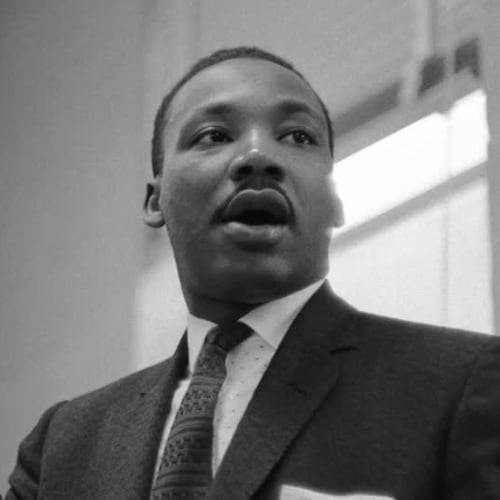Andrew J. Young, Jr. has played an important role in so much of Atlanta’s history. From Andrew Young International Boulevard to Georgia State University’s Andrew Young School of Policy Studies, his name might even seem omnipresent. But the legacy of this civil rights icon, runs even deeper.
A senior aid to Martin Luther King, Jr. within the Southern Christian Leadership Conference during the 1960s, Young was a driving force of nonviolent resistance to prejudice during the most heated moments of the civil rights movement. By 1973, Young was sworn into congress as a Georgia representative. His influence over a city struggling to achieve racial and social equity only grew stronger.
“His experiences in the grass–roots politics of the civil rights movement and his diplomatic perspective allowed Young to take principled but pragmatic stands for his constituents,” the United States House of Representatives History, Art & Archives reported.
Young would go on to serve as ambassador to the United Nations after three terms in congress, having been appointed by President Jimmy Carter. In 1981, Carter awarded Young the Presidential Medal of Freedom.
For the next eight years, Young served as the mayor of Atlanta. According to Young, much of his own success over the years can be traced back to one inspiring moment of “purpose and sustenance.” It was his time with Martin Luther King, Jr.
“He left his mark on me, both in indelible memories and in the spiritual and practical lessons of our trials and triumphs,” Young said, as reported by Stanford’s Martin Luther King, Jr. Research and Education Institute. “It is by the quality of those days that I have come to measure my own continuing journey.”
To this day, the icon is still making a difference — a better world for tomorrow’s Atlanta.
According to Georgia State University, “In the decades since Andrew Young helped change the course of history as a leader in the Civil Rights movement, he has built a remarkable legacy as a civic activist, elected official, groundbreaking ambassador, social entrepreneur, and adviser to presidents. Today, he leads the Andrew J. Young Foundation’s efforts to develop and support new generations of visionary leaders who will create sustainable global approaches to economic development, poverty alleviation, and the challenge of hunger.”
Now 90 years old, Young remains a servant of the people and — to many — the pride of Atlanta.
About the Author
Keep Reading
The Latest
Featured


